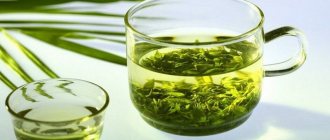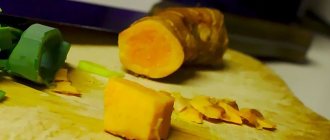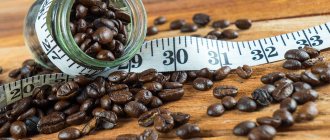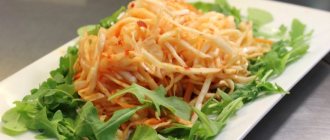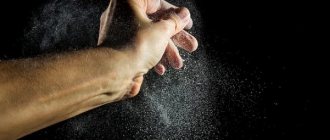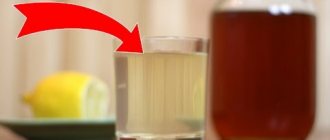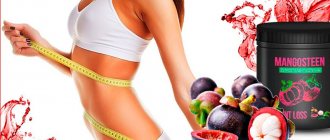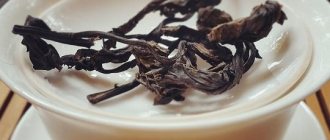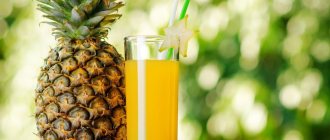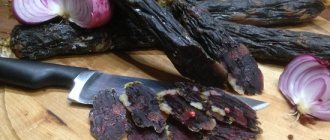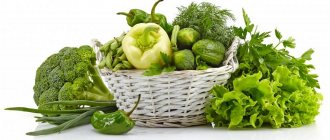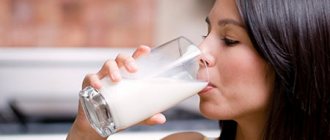How much sugar should I put in tea? The standard answer for most people is one or two spoons. This is how it was in our country ten to fifteen years ago. Now the picture is changing, and every day more and more people prefer to drink tea without sugar. Why? And tea without sugar: what is it good for? Let's try to figure it out.
Firstly, tea is now not just a drink that quenches thirst and brings neighbors together in the evenings.
A well-brewed cup of tea can bring many benefits to human health. But tea with various additives is quite tasty, but not so healthy.
Secondly, if you drink tea without sugar, you can lose weight and get rid of many health problems that are associated with excess weight.
But what if you absolutely cannot do without sugar? Can I use different sugar substitutes? What about those who prefer to drink tea with milk, lemon or honey? We will answer these questions in our article.
Tea without sugar: benefits
Changing habits developed over the years is very difficult. What is important here is incentive and receiving
certain benefit. Let's highlight the three main benefits of drinking tea without sugar:
- Energy without borders! You think that a cup of tea with sugar gives you energy. This is a misconception. That is, energy is, of course, produced, since along with sweet tea, a high glucose content suddenly enters the body. But the effect does not last long, only 10-15 minutes. Then the blood sugar level decreases and the reverse process occurs. Pleasant excitement is replaced by lethargy and irritability. It is important to emphasize here that real tea, brewed properly, can tone you up without any additives. Tea contains tannin, which improves digestion processes and saturates the blood with essential vitamins and microelements. Regular consumption of tea without sugar has a beneficial effect on our body.
- Weight loss. Quite a powerful incentive for people seeking to lead a healthy lifestyle without extra calories. The calorie content of tea without sugar is zero, but the dependence on sweets is quite strong. Having received additional glucose along with a glass of tea, our body begins to demand more and more. A candy, a sweet bun, then another mug of sweet tea and you can’t stop. Does tea without sugar count as water? Many people think that tea without sugar is not tasty, and that extra liver can give it the desired taste. This is fundamentally wrong, since it is sugar, milk, lemon, and baked goods that prevent you from tasting real tea. Only by refusing to drink sweet tea will you be able, over time, to experience its true aroma.
- Skin and digestive health. If you stop drinking tea with sugar, your digestive system will be very grateful. Metabolism will improve and stool will normalize. As a result, the condition of the skin will improve.
You may be interested in: Liver tea: cleanses, heals, restores
Choose good tea
One way out of the situation is to invest in good tea. Instead of buying cakes and chocolate, choose good loose leaf tea and brew it responsibly.
You can even organize an impromptu tea ceremony in the comfort of your home. Real Chinese or Indian tea has a bright, rich taste that you probably won’t want to overpower with sweetness. Turn tea drinking into a real ritual of enjoying a drink, and not just another snack.
How and what to replace sugar in tea
Let's divide sugar alternative products into two groups: artificial and conditionally natural.
In stores on shelves for diabetics you can find
- Saccharin (food additive E954)
- Cyclomat (food additive E952)
- Aspartame (sweetener E951)
- Acesulfame (food additive E950)
- Milfort (available in tablets or liquid form)
There are other artificial sugar substitutes. What can you say about their use? Synthetic additives are much lower in calories, but almost 300-500 times sweeter than sugar.
Most often they are found in chewing candies and gum, in light carbonated drinks, and in some “diet” baked goods. The use of such supplements is attractive for those who like to count the carbohydrates they consume and indulge in sweets. They no longer provide any benefit, while the harm to the body can be quite significant.
I don’t want to scare you with the numbers of studies conducted on the development of cancer with long-term use of nutritional supplements of this kind. Let's just say that some of them are already prohibited for use in developed countries.
Conditionally natural sweeteners include:
- Fructose. In small quantities, it does not increase sugar levels immediately after consumption. However, if consumed in excess, it can cause obesity and heart disease due to its high calorie content.
- Xylitol and sorbitol. In industrial production, these additives are obtained from corn cobs and deciduous tree wood. The consumption rate of sorbitol and xylene should be established by the doctor, depending on the characteristics of the patient’s body. In large doses, these products can cause a variety of gastrointestinal disorders.
- Stevia is a popular product in South America, which is extracted from the leaves of the plant of the same name. The biggest plus is zero calories and no side effects from consumption. So, if the price and taste of the product satisfy you, you can use it as a sugar substitute.
- Agave, syrup release form. If the dose is exceeded, significant disturbances in the functioning of the nervous system can occur. It is not always natural; chemical compounds are used in production.
- Honey. Suitable for people who do not suffer from allergic reactions. There is a lot of controversy regarding the use of honey in a heated state (which is what it most often becomes in tea). If you drink tea with honey, it is better not on a regular basis.
You may be interested in: Tea with milk for weight loss, rules for fasting days
Low glycemic index foods (can be consumed without restrictions)
| 2 | ||
| Sugar | 70 | 395 |
| Syrup | 65 | 230-270 |
| Honey | 50-70 (depending on the variety) | |
| Caramel | ||
| 395 | ||
| Cream 10% | 25 | 118 |
| Cream 20% | 25 | 206 |
| Cream 30% | 25 | 287 |
| Cream 35% | 25 | 337 |
| Milk 1.5% fat | 30 | 44 |
| Milk 2.5% fat | 30 | 52 |
| Milk 3.2% fat | 30 | 58 |
| Milk 3.5% fat | 30 | 61 |
| Soy milk | 30 | 54 |
| Condensed milk | 80 | 320 |
| Product | GI |
| Sunflower seeds | 8 |
| Garlic | 10 |
| Lettuce | 10 |
| Leaf lettuce | 10 |
| Tomatoes | 10 |
| Onion | 10 |
| Cabbage | 10 |
| Mushrooms | 10 |
| Broccoli | 10 |
| Kefir | 15 |
| Peanut | 15 |
| Various nuts | 15-25 |
| Soybeans | 16 |
| Red beans | 19 |
| Rice bran | 19 |
| Lingonberry, cranberry | 20 |
| Fructose | 20 |
| Cherry | 22 |
| bitter chocolate | 25 |
| Berries | 25-30 |
| Lentils | 27 |
| Whole milk | 28 |
| Beans | 30 |
| Skim milk | 32 |
| Plums | 33 |
| Low-fat fruit yogurt | 33 |
| Pears | 35 |
| Apples | 35-40 |
| Wholemeal bread | 35 |
| Barley bread | 38 |
| Dates (dried) | 40 |
| Cereals | 40 |
| Buckwheat | 40 |
| Strawberries, strawberries, gooseberries | 40 |
| Fruit juices | 40-45 |
| White spaghetti, pasta | 42 |
| Oranges, tangerines | 42 |
Can I drink tea with milk?
For the first time, milk was added to tea at the court in Great Britain. Fearing that the fragile porcelain cups would crack from the boiling water, the English courtiers began filling them with milk, to which they later added tea. The English nobility liked the aromatic, not hot drink so much that its fame spread throughout the world.
Beneficial properties of milk tea
- Milk reduces the effect of tannin on the human body. Tea is less invigorating and can be drunk more often, regardless of the time of day.
- Tea enhances the absorption of milk proteins and calcium.
- Tea with milk has a positive effect on the gastric mucosa.
- Drinking warm tea with milk enhances lactation in nursing women.
Foods with a medium glycemic index (It is advisable not to overuse these foods)
| Canned peas | 43 |
| Melon | 43 |
| Apricots | 44 |
| Peaches | 44 |
| Beer, kvass | 45 |
| Grape | 46 |
| Wild rice | 47 |
| Bran bread | 47 |
| Green peas | 47 |
| Grapefruit juice | 49 |
| Barley flakes | 50 |
| Mango, kiwi | 50 |
| Wholemeal bread with bran | 50 |
| Canned beans | 52 |
| Popcorn | 55 |
| Brown rice | 55 |
| Oat cookies | 55 |
| Oat bran | 55 |
| Buckwheat | 55 |
| Boiled potatoes | 56 |
| Mango | 56 |
| Bananas | 57 |
| Rice vermicelli | 58 |
| Pasta | 60 |
| Hamburger | 61 |
| Rye bread | 63 |
| Beet | 65 |
| Semolina | 66 |
| Raisin | 67 |
| Dried fruits | 67 |
| Pepsi, cola and similar drinks | 67 |
| White bread | 70 |
| Wheat flour (grade) | 70 |
| White rice | 70 |
| Corn | 70 |
| Mashed potatoes | 70 |
Possible harm of milk tea
The main harm of milk when added to tea is that the beneficial properties of the tea are lost.
- For example, it is known that tea is an excellent antioxidant. Substances contained in tea can slow down cell aging. Milk protein (casein) suppresses this beneficial property of tea by about 80%.
- Also, when milk is added, tea ceases to have a relaxing effect on the body and does not dilate blood vessels.
- When drinking tea with milk without sugar, the calorie content increases and fat burning does not occur.
Why do you want sweets?
When you really want something sweet, listen carefully to your body. What exactly do you think is missing? A good solution would be tea with natural yoghurt and honey.
- If you are craving chocolates, then perhaps your body does not have enough magnesium. Replace chocolate with figs, raisins and dried apricots.
- If you want flour, then your body clearly lacks fat-soluble vitamins and healthy fats. You can snack on almonds or cook meat, zucchini, and sweet potatoes for dinner.
- If you want tea with halva or kozinaki, snack on walnuts, cottage cheese or fruit mousse with flax seeds. Tea with walnuts is especially delicious. Pleasant aftertaste!
Should you drink tea with lemon?
Another popular addition to tea is lemon slices. Of course, the beneficial substances contained in lemon have a very beneficial effect on the body. For colds, citrus fruits rich in vitamin C, when combined with hot tea, can significantly increase the body's resistance. In addition, adding lemon to tea significantly increases the amount of catechins, which in turn increases the antioxidant properties of tea. It is recommended to drink tea with lemon for liver diseases, urolithiasis, and low blood pressure.
If you drink tea with lemon without sugar, the calorie content will not change significantly. Citric acid also promotes the breakdown of fats in the body and enhances metabolism. Therefore, lemon tea is suitable for consumption in any diet.
Tea with lemon is contraindicated for people suffering from:
- allergies to citrus products;
- increased acidity;
- glaucoma;
- stomach ulcer.
Foods with a high glycemic index (It is better to limit your consumption of these foods)
| Watermelon | 71 |
| Wheat flakes | 73 |
| Wheat bread | 75 |
| French fries | 75 |
| Cornflakes | 80 |
| Caramel | 80 |
| Baked potatoes | 85 |
| Honey | 88 |
| Puffed rice | 94 |
| Glucose | 100 |
| Maltose | 105 |
| Malt | 110 |
What does a blood sugar test show?
The analysis shows the level of sugar (glucose) in the blood, which may indicate the presence of diabetes mellitus and other diseases. Low sugar levels (hypoglycemia) can signal diseases of the pancreas, liver, kidneys and adrenal glands, as well as the hypothalamus.
The most common cause of high blood sugar (hyperglycemia) is diabetes. Hyperglycemia can also indicate other endocrine diseases, problems of the liver and hypothalamus, and a constant inflammatory process in the body.
There is also a glucose tolerance test (also known as a glucose tolerance test or GTT), which is performed to detect prediabetes and is also prescribed to pregnant women.
Where are the most calories?
Coffee, like tea, can put your thoughts in order and invigorate you in just a couple of minutes. In terms of nutrition, it is not much different from brewed tea leaves. In other words, each mug of both drinks contains 5 kcal. However, few people are able to drink coffee without sweeteners (sugar, honey) and other additives (milk, cream, cinnamon, etc.), which significantly increase the energy value.
Hence the following data:
- coffee mug with milk – from 27 to 30 kcal (+ sugar – 80-90);
- with cinnamon – 32;
- with honey – 48;
- with cream – 90-100.
Features of black tea production
The raw materials for the production of black teas are young leaves and not yet blossomed buds of the evergreen plant Camellia Sinensis, which means “Camellia Chinese” in Latin. Plantations where plants are grown for the production of black tea are located mainly in Sri Lanka, India and the Krasnodar region of Russia.
After harvesting, the plant material undergoes a lengthy fermentation process. For this purpose, tea leaves and buds are kept at elevated temperatures for a certain time, which leads to the oxidation of plant materials. As a result, its structure and composition changes; Some natural components are destroyed, but other beneficial substances appear, such as theaflavins and thearubigins.
The degree of fermentation of black tea usually ranges from 70-85%.
Food colorings
Prohibited food colorings - those that are reliably harmful to the body (prohibited in Russia):
- E121 - Citrus red 2 (dye);
- E123 - Red amaranth (dye);
- E128 - 09/03/2007. Red 2G (dye);
- E216 - Para-hydroxybenzoic acid propyl ester, paraben group (preservative);
- E217 - Para-hydroxybenzoic acid propyl ester sodium salt (preservative);
- E240 - Formaldehyde (preservative).
Prohibited additives - harm has not been proven, but are not allowed for use in the Russian industry due to an insufficient number of quality tests.
- E127 - Erythrosine - banned in a number of countries;
- E154 - Brown FK;
- E173 - Aluminum;
- E180 - Ruby lithol VK;
- E388 - Thiopropionic acid;
- E389 - Dilauryl thiodipropionate;
- E424 - Kurdlan;
- E512 - Tin(II) chloride;
- E537 - Iron hexacyanomanganate;
- E557 - Zinc silicate;
- E912 - Esters of montanic acid;
- E914 - Oxidized polyethylene wax;
- E916 - Calcium iodate;
- E917 - Potassium iodate;
- E918 - Nitrogen oxides;
- E919 - Nitrosyl chloride;
- E922 - Potassium persulfate;
- E923 - Ammonium persulfate;
- E924b - Calcium bromate;
- E925 - Chlorine;
- E926 - Chlorine dioxide;
- E929 - Acetone peroxide.
Food additives allowed in Russia, but prohibited in the European Union:
- E102 - Tartrazine;
- E142 - synthetic food coloring Green S;
- E425 - konjac, konjac flour, konjac gum and konjac glucomannan.
Table
| Drink name | Number of calories |
| Black tea without sugar | 3-7 |
| With sugar | 70 |
| With condensed milk | 47 |
| With lemon | 35 |
| With honey | 60 |
| With milk | 50-80 |
| With jam | 40 |
